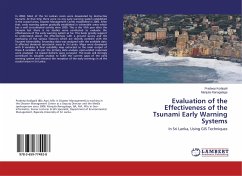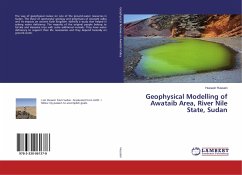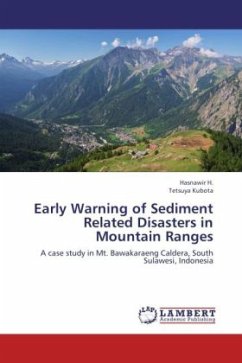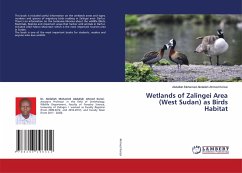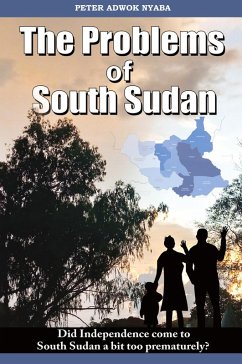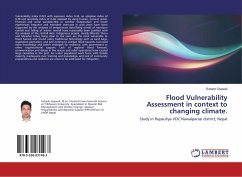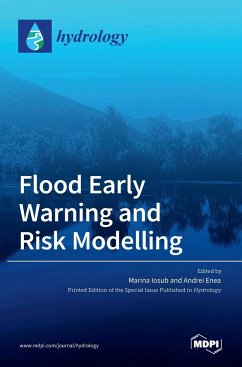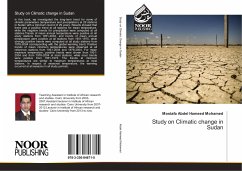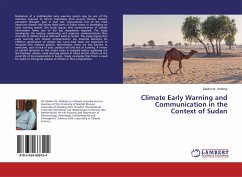
Climate Early Warning and Communication in the Context of Sudan
Versandkostenfrei!
Versandfertig in 6-10 Tagen
27,99 €
inkl. MwSt.

PAYBACK Punkte
14 °P sammeln!
Realisation of a multifaceted early warning system may be one of the solutions required to inform impending food security threats. Indeed, persistent drought, year in year out, characterises one of the most important climate risks facing many parts of Sudan today. In developing an early warning system, this study argues that communication of climate information forms one of the key ingredients required. The study investigates the existing monitoring and response communications flow channels of climate data at different levels in Sudan. The study argues that early warning and climate communicat...
Realisation of a multifaceted early warning system may be one of the solutions required to inform impending food security threats. Indeed, persistent drought, year in year out, characterises one of the most important climate risks facing many parts of Sudan today. In developing an early warning system, this study argues that communication of climate information forms one of the key ingredients required. The study investigates the existing monitoring and response communications flow channels of climate data at different levels in Sudan. The study argues that early warning and climate communication are essential elements for effective governance of climate risk. Local level views are important to integrate into national policies. Nevertheless, there are also barriers to overcome, such as lack of data, political will and lack of funding. A review of rainfall variations in the recent times is analysed before exploring the link between climate, early warning systems in Africa and its effects on the social life of local pastoralists in Sudan. Study concludes that there is need for policy to intergrate impacts of climate in their programmes.



